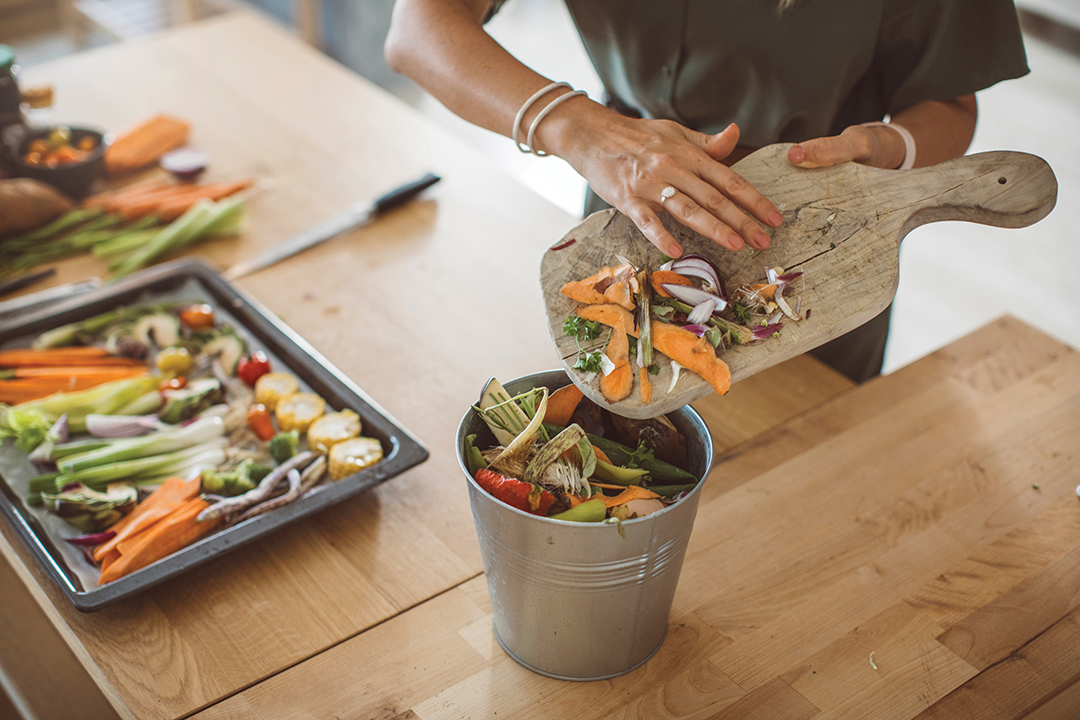
iStock/svetikd
A new effort aims to reduce the amount of organic material and food waste thrown in the garbage.
Have you ever thrown watermelon rinds on a campfire? Probably not, because they likely wouldn’t burn very well. The same scenario holds true when rinds and other food waste go through an incinerator at landfills—it’s just not efficient.
But there is another option. The curbside organics collection service is a new effort for Plymouth residents to turn their food waste into nutrient-rich topsoil or compost.
To learn about the whats and the whys of the city-run program, we turned to Chris McKenzie, Plymouth engineering services manager, as well as Plymouth resident Alison Cerier, to offer their insight on the program and some practical advice for those who want to become involved.
How did the idea of this effort come to life?
Chris McKenzie (CM): It’s not unique to Plymouth and has been done in many other communities in the Twin Cities. Hennepin County has a mandate for all [households with curbside recycling services] to be offered the opportunity for curbside organics recycling. All single family and multifamily households pay for organics recycling through their utility bill, like regular recycling.
Who is eligible for this program?
CM: The program is available to single family homes and multifamily units up to eight units.
When can people sign up?
CM: Folks can sign up anytime. There is no deadline. It’s whenever they want. When they sign up, they’ll be delivered a 35-gallon bin to start their service a few weeks after.
What can and cannot be included in the Curbside Organics Collection bins?
CM: Traditionally, organic materials include things like food scraps, food waste, banana peels, eggshells, that sort of thing. Because we process at a commercial facility, we can also take things like pizza boxes [and] meat and chicken bones.
How is odor controlled?
CM: This doesn’t smell any more than regular garbage. The curbside organics collection is weekly, so materials will be picked up in a timely manner to help prevent any issues with odor.

Unlike single-sort recycling, curbside organics are collected weekly. Photo: City of Plymouth
A First-Hand Perspective
Cerier shares her own insights as an early adopter of the service.
When did you sign up?
Alison Cerier (AC): We’d had [organics collection] previously, through our regular trash vendor. We started that two years ago, which is why I had some experience. I signed up when it started, March 1. It was very easy to sign up on the website.
Where do you store the 35-gallon bin?
AC: We have a door from our kitchen into the garage, so we just tuck it next to the stairs that go into the garage. You also need something to collect scraps and organics as you’re living your life. At first, we were using a small bowl, but then we ordered a little bin with a lid that we keep on the kitchen countertop, since we’re always putting things into it. What I tell people is you figure out what works for you. I think people were concerned they’d have another big bin like their garbage bin, but this one is smaller.
Were there any items you found out could be included in the collection bins that you were surprised by?
AC: I was surprised that tissues, napkins and paper towels could be put in there. They’re not OK for backyard composting, but for this kind they are.
What do you see as the greatest benefit of the program?
AC: This feels good every day. I think everybody wants to do something for the environment, and this is an important way to make a difference—it’s like giving your food a new life. It’s exciting to me.
To find out more or sign up, visit plymouthmn.gov/organics.





















